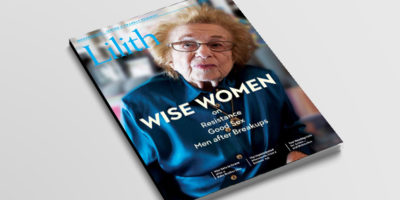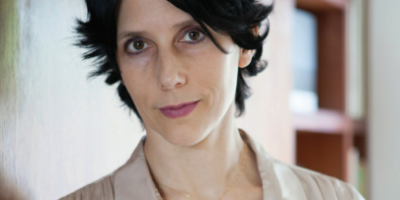Jewish Fatherhood Needs a Makeover
Interfaith Parenting
Born to two Jewish parents, I have enjoyed the privilege of engaging with Judaism in whatever way I see fit. It wasn’t until I took a non-Jewish surname that my Jewish identity was ever truly questioned. Americans, not just Jews, from mixed religious backgrounds, are more likely to adopt their mother’s religion — 48 percent to 28 per- cent (24 percent adopt neither). American mothers of children with mixed religious backgrounds are also more responsible for religious upbringing, 59 percent to 35 percent. In other words, the inequality in responsibility for religious upbringing and identification is an American phenomenon. The acceptance by the Reconstructionist and Reform movements (1968 and 1983, respectively) of what is referred to in Jewish circles as patrilineal descent, has had little bearing on intermarried Jews’ lives and even less influence on changing public perception about who is Jewish. “You’re Jewish if your mom is Jewish” has a tenacious hold on American Jewish culture’s social construction of Jewish identity.
Jewish fatherhood needs a makeover. Enabling intermarried Jewish men, along with all American men, to better integrate work and family is a feminist goal, and reaching it will benefit intermarried Jewish families. Encouraging men of all denominational stripes to invest in raising Jewish children is not about men getting in touch with their feminine side. It is about acknowledging that while American men contribute more at home than they did in years past, they still do far less than women on the domestic front. It also requires confronting the reality that intermarried Jewish men have been shortchanged in the realm of domestic Judaism, sometimes inadvertently ousted by their wives, who pick up the slack, and neglected by a Jewish community that erroneously assumed they did not come back after becoming b’nai mitzvah because their Jewishness was unimportant to them or because women were present.
Redefining Jewish fatherhood will not only create happier intermarried Jewish families; it will also eliminate a sex-gender system based on inequality, creating room for one that is truly socially advanced. The new model of Jewish identity and fatherhood that emerges will include active involvement in the day-to-day responsibility of parenting Jewish offspring that happens in the home as well as in the synagogue or Jewish community center. Just as important, however, it will encourage Jewish men to incorporate fathering into their Jewish identities as contributing parts of their inner essence, just as it is for Jewish mothers. When that happens, a new psychological process will reproduce neither motherhood nor fatherhood, allowing instead for equal parenthood to empower all sexes and, subsequently, their offspring.
If non-Orthodox Jews across the spectrum of Judaism could stop romanticizing the Jewish womb and break free of the matrilineal-patrilineal descent dichotomy (that is also cisnormative and heteronormative), we could focus instead on what really makes someone Jewish, extending beyond religious belief and cultural heritage to education, experience, beliefs and behavior. If descent were no longer at the center of whether someone is Jewish from birth or has to “choose” it to be fully Jewish, energy could be directed at egalitarian Jewish parenting. This kind of parenting would strengthen Jewish peoplehood and contribute to transforming Judaism for the modern family by emphasizing how both parents wield influence over Jewish identity building.
Intermarried Jewish men can raise Jewish children equally effectively as intermarried Jewish women provided that they understand that it is their responsibility to do so, ideally in partnership with their spouses, and that their effort is valued. Jewish men can become the Jewish role models in their families, even if their own fathers were not. For example, intermarried Jewish men can light Shabbat candles, read Jewish bedtime stories, and transmit their love of Jewish culture to their offspring. For children of Jewish fathers to become as strongly identified Jews as children of Jewish mothers requires a real cultural shift in how we communicate about identity and think about meaningful engagement with Judaism. By making identity an equal opportunity between genders, Jews can lead the way in illustrating that a man’s job is in the nursery just as a woman’s job is in the boardroom.
KEREN MCGINITY on the Lilith Blog.



